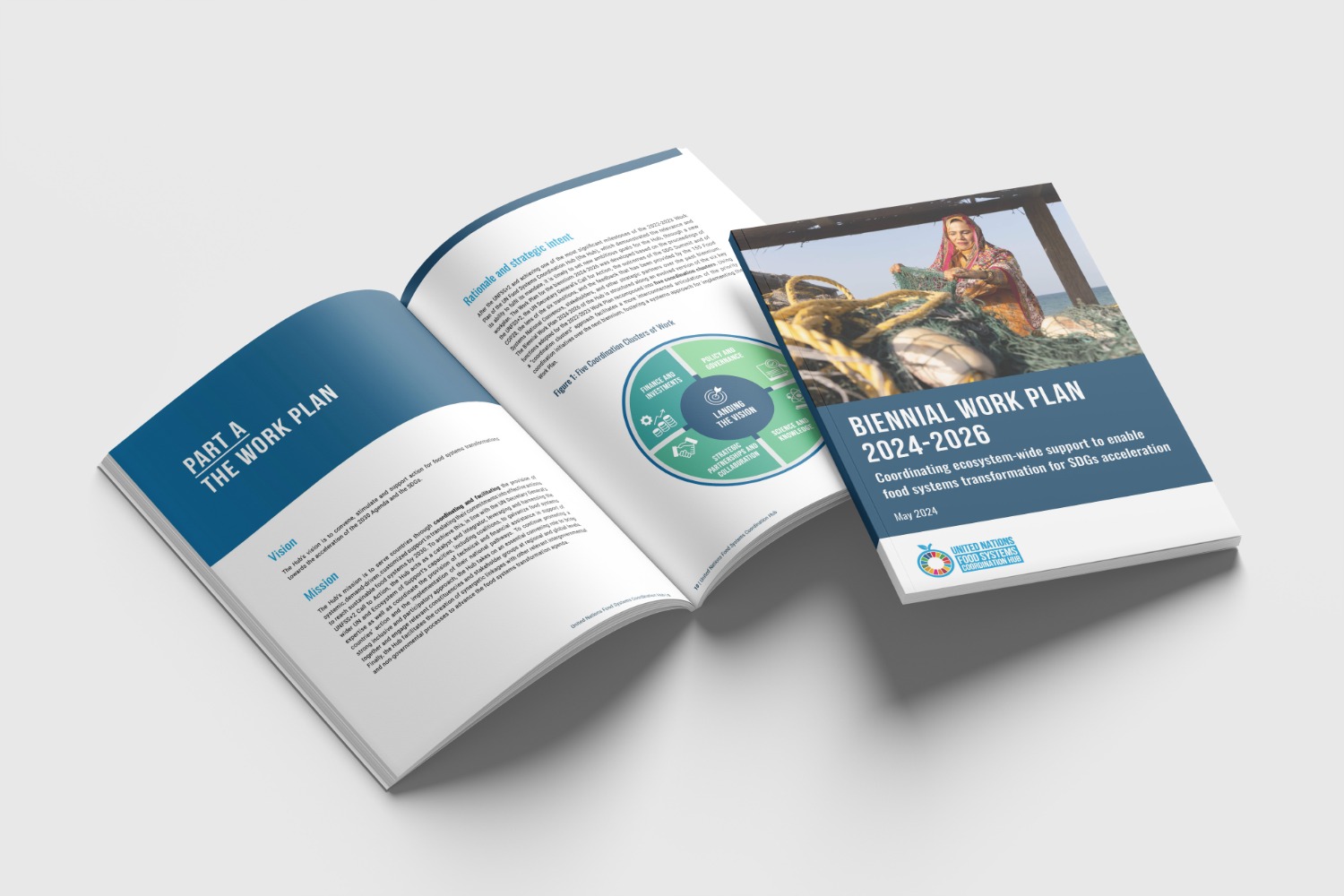SEED FUNDING JOINT PROGRAMMES
Rwanda
Resilient Food Systems: Enhanced Value Chain and Post Harvest Management





PROJECT TITLE | Resilient Food Systems: Enhanced Value Chain and Post Harvest Management |
| Context | Food systems transformation is embedded in several national policies in Rwanda, including the National Transformation Strategy, the Strategic Plan for Agriculture Transformation, the National Environment and Climate Change Policy. In 2021, Rwanda developed its National Pathway, which highlights four priority areas for the country towards 2030: ensuring food security and nutrition for all, while increasing demand for healthy diets; enhancing the environmental sustainability of food systems; improving livelihoods for farmers and all workers in food systems while building resilience to shocks; promoting inclusion of women and youth in food systems, including through enhanced financial opportunities. |
| PUNOs | FAO, WFP, IFAD |
| Contribution to SDGs | SDG 1 No Poverty; SDG 2 Zero Hunger; SDG 8 Decent Work and Economic Growth; SDG 13 Climate Action |
| Contribution to other SDG transitions | Decent Jobs and Universal Social Protection; Energy Access and Affordability |
| Duration | July 2024 – June 2025 |
| Expected financial leverage | $ 3,070,000 |
| Alignment with SG Call to Action | Policy integration; Food systems governance; Research, data, technology and innovation; Inclusive and participatory design; Private sector engagement |
| Outcomes | The JP leverages on improved post-harvest management as a strategic approach to simultaneously reduce food loss, improve incomes, and boost food availability. The JP promotes the economic integration of youth-led MSMEs and builds linkages with partners and initiatives focused on nutrition and food security to connect the dots between food production, processing and consumption. |
| Partners |
|
| Outputs |
|
Post-harvest management
Youth employment
Inclusivity
The Biennial Work Plan 2024-2026

31/05/2024
Following the Hub’s 2022-2023 Biennial Work Plan, the new Work Plan of 2024-2026 reaffirms the mission of the Hub to focus on serving countries through coordinating and facilitating the provision of systemic, demand-driven, customized support in translating their commitments into effective actions to reach sustainable food systems by 2030. The emphasis remains on concretely facilitating the coordination of support to countries in collaboration with agencies supporting the Hub at HQs, regional and country levels, the wider UN System, Resident Coordinators (RCs), UN Country Teams (UNCTs), and the national Ecosystem of Support (EoS) to ensure profound and sustainable impact.
This Work Plan is structured along an evolving version of key functions adopted for the 2022-2023 Work Plan recomposed into five coordination clusters. This “coordination clusters” approach facilitates a more interconnected articulation of the priority coordination initiatives over the next biennium, fostering a systems approach.
This Work Plan is structured along an evolving version of key functions adopted for the 2022-2023 Work Plan recomposed into five coordination clusters. This “coordination clusters” approach facilitates a more interconnected articulation of the priority coordination initiatives over the next biennium, fostering a systems approach.
